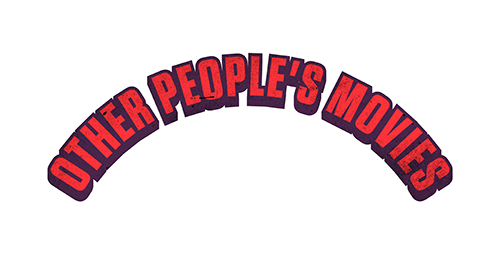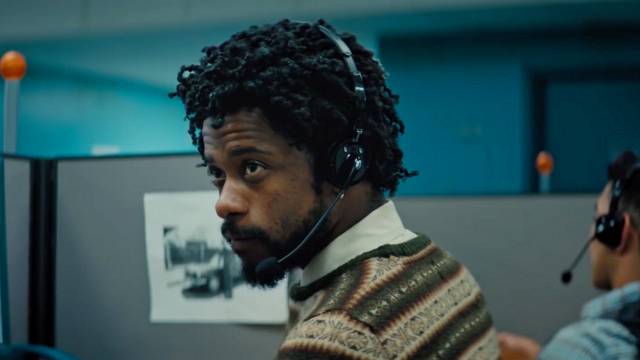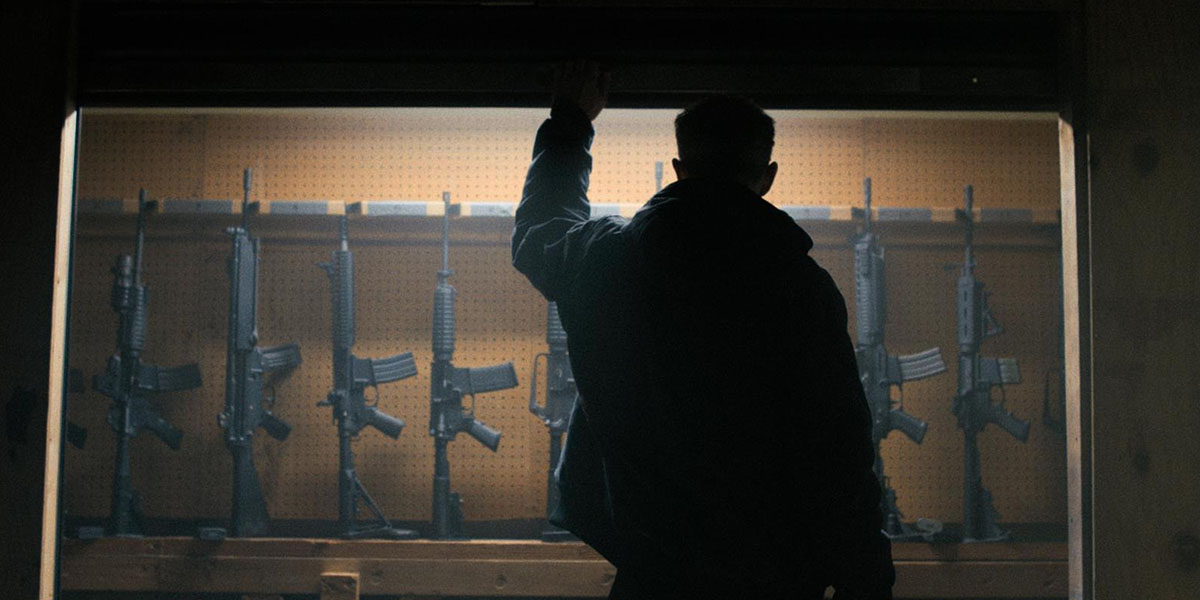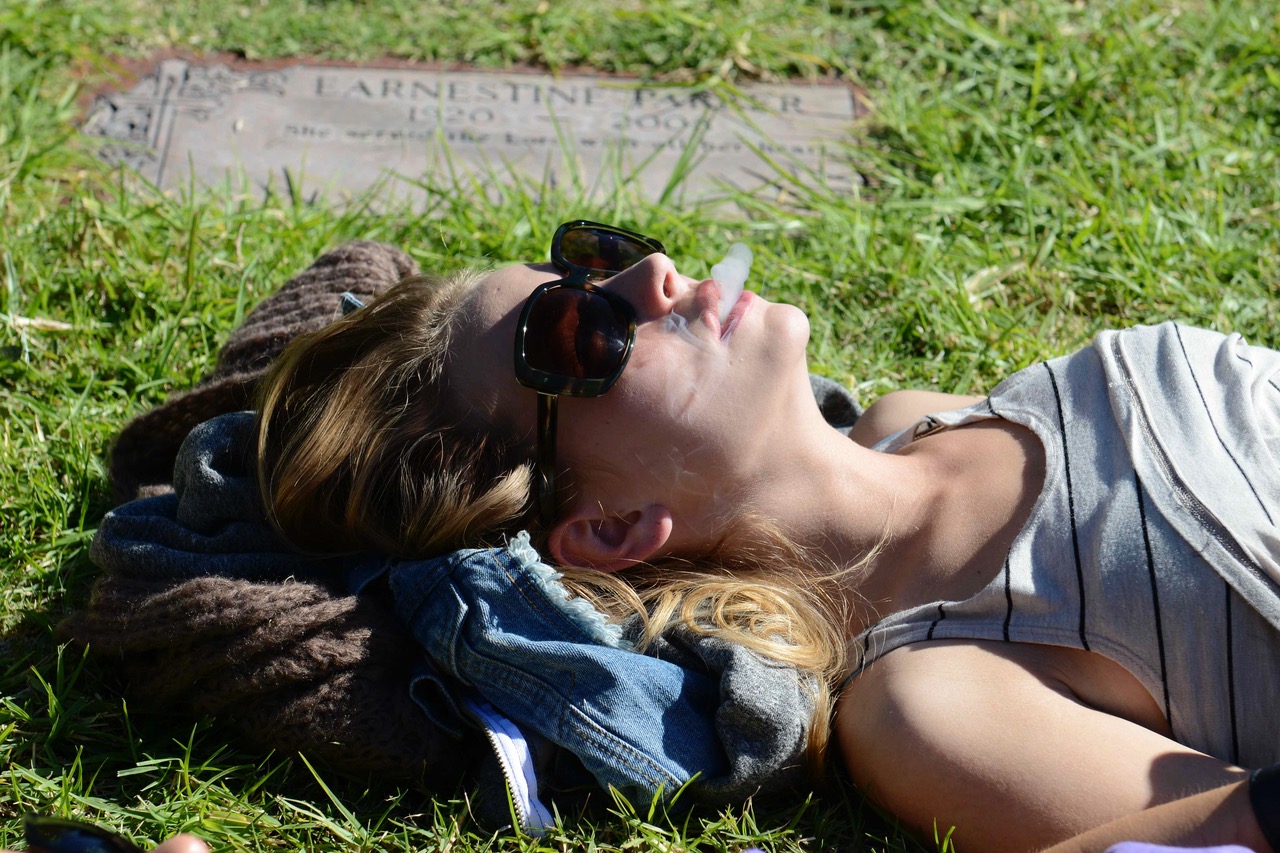
The accomplishments of a screenwriter are rarely as celebrated or remembered as the accomplishments of an actor or director. Screenwriters are treated expendably and always have been. Hollywood’s publicity machine has repeatedly taught us that actors are the stars, directors are the artists, and everyone else is serving under their vision. When a movie is a success, the writer’s credit is often nowhere to be found. When it’s not, they’re often the first person to be blamed.
A screenwriter’s job is just as important as anyone else’s on a movie, perhaps more so. Without the blueprint that actors, directors, and crew people follow, there is little hope for success in any capacity. Why, then, have screenwriters always been treated with such disrespect (that is, if you don’t count their paycheck)? There are many reasons, but the predominant one is that a screenwriter’s work, if done correctly, is usually invisible. Bad screenwriting usually receives the most attention because it sticks out. Good screenwriting makes the director and actors look all the more capable, and they usually wind up hogging most of the credit as a result.
Flashily stylish screenwriting that draws attention to itself is usually the type that receives the most positive attention from audiences and critics. This was particularly true in the 90s. Back then, if your last name wasn’t Tarantino, if you didn’t create a television show about vampire slayers, and if you weren’t writing clever, long-winded, pop-culture referencing dialogue that sometimes stuck a “y” on the end of select words regardless of grammatical correctness, then you weren’t a writer worth caring about.
The following list features screenwriters who did prominent work in the 90s. Some of them received attention at the time and some of them primarily went by unnoticed. Today, all of them are under-appreciated, especially when considering the quality and, sometimes, classic work that they have all been responsible for creating. The writers on this list are all immensely talented, yet none of them are currently as celebrated or as produced as often as they deserve to be. Few screenwriters are, except, of course, for all those Tarantino-y.

20. David Veloz
One of the most controversial, equally hated and revered movies of the 90s, Natural Born Killers, started with an original screenplay by the one and only Quentin Tarantino (though you could argue it actually started with a screenplay by Roger Avary, but we’ll get into that later). That screenplay was eventually rethought and rewritten (though not as heavily as has been reported) by the film’s director, Oliver Stone, and his associates, Richard Rutowski and David Veloz.
Through the rewrites, Natural Born Killers became an astute and bombastic satire of the 90s, as socially aware as it is chaotically charged. One of the most inspired and daring additions to the script, a flashback scene in which a brutal killer imagines her life as a then-modern-day sitcom, was solely Veloz’s creation.
Since Killers’ 1994 release, little has been seen or heard from Veloz. In 1998, he directed his own adaptation of Jerry Stahl’s classic addiction memoir, Permanent Midnight. Despite his commendable work on that challenging film, he has only received writing credits on two shorts and one feature-length film since. That feature is 2001’s Owen Wilson- and Gene Hackman-starring military thriller, Behind Enemy Lines.
Veloz’s unique and audacious talents have served past films well, and they will, hopefully, return to increase the quality of films yet to come.
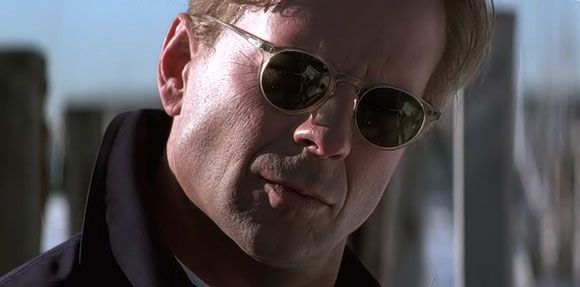
19. Chuck Pfarrer
When it comes to 90s action films, there isn’t a more legitimate force behind them than Chuck Pfarrer. An ex-Navy SEAL, Pfarrer has lent a hefty amount of authenticity to a number of films that he wrote or co-wrote. 1990’s Navy Seals and Darkman, 1993’s Hard Target, 1996’s Barb Wire, and 1997’s The Jackal are all action titles that benefitted from Pfarrer’s talents and life experiences.
The 90s were a busy time for the writer, as he also created two comic books for Dark Horse Comics that were published during the early years of the decade, Virus (which was later adapted into a 1999 Jamie Lee Curtis-starring film) and The Thing From Another World. Pfarrer also tried his hand at writing for video games around this time, lending his talents to such titles as Flash Traffic: City of Angels and Silent Steel.
Since the 90s, Pfarrer’s screenwriting work has been scarce and primarily uncredited, aside from his work on the 2000 science fiction thriller, Red Planet. He has managed to keep busy, however, by writing books.
In 2004, Pfarrer published his memoir, Warrior Soul: The Memoir of a Navy SEAL and, in 2011, he published the non-fiction book, SEAL Target Geronimo: The Inside Story of the Mission to Kill Osama bin Laden. He has also, to date, written two historical fiction novels, 2007’s Killing Che and 2016’s Philip Nolan: The Man Without a Country.

18. Ebbe Roe Smith
Star Michael Douglas and director Joel Schumacher received some of the best reviews of their careers for 1993’s Falling Down. The film centers on a mentally unstable man (Douglas) who abandons his car in a traffic jam, then treks through Los Angeles on foot while facing many of the city’s darker aspects.
Falling Down is a fiercely satirical, intelligently observational, and dramatically powerful piece of work. While Douglas and Schumacher deserve their praises, the individual who wrote and created the film never quite received the credit he deserved.
Ebbe Roe Smith, despite having written one of the smartest and edgiest studio films of the 90s, only has two other screenplay credits to his name. Also in 1993, he co-wrote the Peter Weller-directed made-for-television movie, Partners, and, in 1994, he was credited for writing the critically maligned feature-length remake of the 60s sitcom, Car 54, Where Are You?
Also an actor, Smith has several screen credits to his name, the most recent of which is for a recurring role on the hit comedy series, Portlandia.
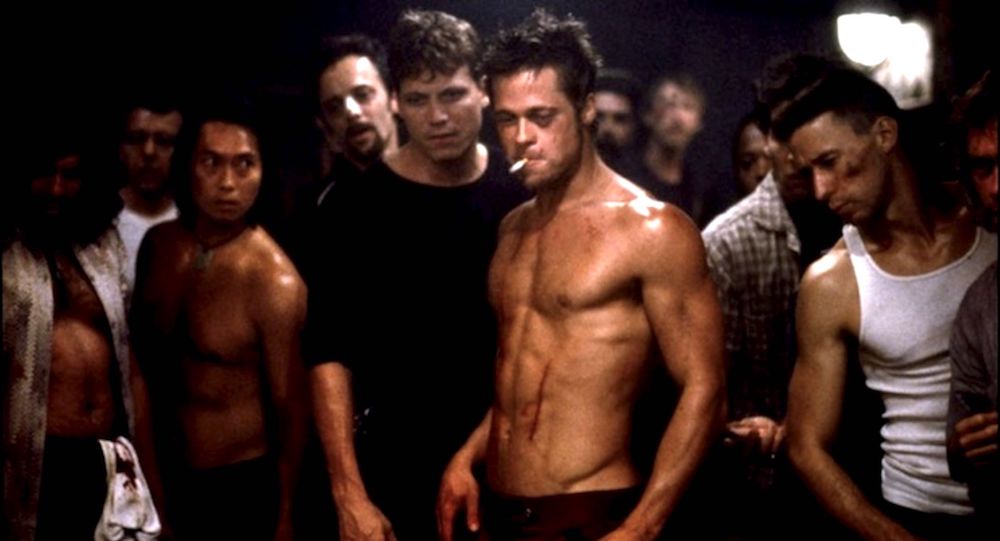
17. Jim Uhls
Director David Fincher and source novelist Chuck Palahniuk are usually considered the most important names behind the creation of 1999’s Fight Club, which is one of the most original, scathingly hilarious, and impressively crafted satires of all time.
The guy who actually adapted Palahniuk’s novel for the screen, Jim Uhls, somehow gets lost when the film’s praises are being sung. This is a shame because a large part of what makes Fight Club so spectacular is its carefully crafted yet anarchically structured screenplay.
Uhls has had very few screen credits to his name since Fight Club. He received sole credit for the little-seen 2004 feature, Sweet Talk, and was credited alongside David S. Goyer and Simon Kinberg for the 2008 sci-fi/action film, Jumper. Aside from those titles, he has been credited for a handful of short films over the years and for the upcoming documentary, Idiot Savant: The Savage Life of Ryan Leone.
Uhls’ celebrated spec screenplay, The Train, remains unproduced, despite having Ridley Scott attached to direct it and H.R. Giger attached to design it in the late 80s.

16. Guinevere Turner and Rose Troche
The 90s were a time in which an eclectic group of voices were heard in filmmaking, particularly in the independent scene. Though the lesbian community wasn’t properly represented in the time’s mainstream films (and still isn’t to this day), it was given respect and examination with the critically lauded 1994 independent comedy/drama, Go Fish.
The Chicago-set film was written by star Guinevere Turner and director Rose Troche, who were romantically linked to one another at the time of the film’s production. Though it wasn’t exactly embraced by mass audiences, Go Fish was an influential hit on the indie circuit at the time of its release. Indie sensation Kevin Smith openly celebrated the film, citing it as a major influence on his own 1997 lesbian-themed comedy/drama, Chasing Amy.
Turner and Troche have consistently worked as writers since the 90s, with both of them contributing to the mid-to-late 2000s lesbian-centered hit series, The L Word. Turner also has a wide variety of acting credits to her name, while Troche has since directed a couple of features (1998’s Bedrooms and Hallways and 2001’s The Safety of Objects) and numerous television episodes (Six Feet Under, Ugly Betty, Law & Order, Greenleaf, Shameless, FBI, and many others).
Though Troche seems to be more focused on directing today, Turner has gone on to be credited for writing a significant number of features and short films. Her most noteworthy works are her screenplay collaborations with the celebrated indie filmmaker, Mary Harron, which include 2000’s American Psycho, 2005’s The Notorious Bettie Page, and 2018’s Charlie Says. Though both Turner and Troche are still steadily working today, their voices are unjustly uncelebrated by the mainstream.
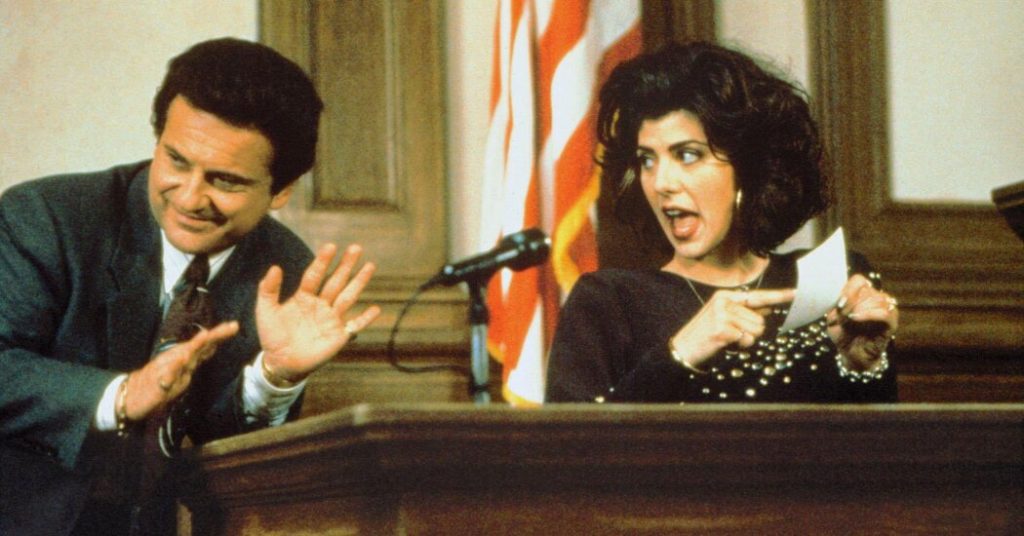
15. Dale Launer
After penning a string of successful dark comedies in the mid-to-late 80s (Ruthless People, Blind Date, Dirty Rotten Scoundrels), Dale Launer was credited for writing one of the most iconic movies of the 90s, the 1992 fish-out-of-water comedy, My Cousin Vinny.
The film is considered to be one of the best of stars Joe Pesci and Marisa Tomei’s (who won the Best Supporting Actress Oscar for her role in the film) careers. Launer’s endlessly hilarious writing, however, didn’t receive the same attention.
Since My Cousin Vinny’s release, Launer has received very few screen credits. Also in 1992, he wrote and directed the underrated comedy, Love Potion No. 9. Launer didn’t receive another screen credit until over a decade later for his unreleased and little-seen writing and directing effort, Tom’s Nu Heaven.
Since then, he has only been credited for the story and for the co-writing of Dirty Rotten Scoundrels’ 2019 remake, The Hustle.

14. Jeb Stuart
Action screenwriters, like most screenwriters, never get the credit they deserve. This is true even if their first screenplay credit, like Jeb Stuart’s, is for arguably the greatest and most lauded action film ever made, 1988’s Die Hard.
Since Die Hard’s release, Stuart worked steadily into the late 90s, co-penning major titles such as 1989’s Leviathan and Lock Up, 1990’s Vital Signs and Another 48 Hrs., 1993’s The Fugitive, 1995’s Just Cause, and 1997’s Fire Down Below. Also in 1997, Stuart made his directorial debut (and received his first solo screenwriting credit) with Switchback, a well-done action/thriller that failed to find success at the box office.
Since Switchback, Stuart’s name hasn’t been as seen as often as it once was. He didn’t receive another screen credit until his 2010 adaptation of the book, Blood Done Sign My Name, which he also directed. Since then, Stuart has worked primarily in television, writing the 2020 miniseries, The Liberator, and creating and writing for the recently released, Vikings: Valhalla.
Stuart appears to have no intention of breaking from his action roots, as he is currently committed to write for the upcoming series based on the popular action video game franchise, Assassin’s Creed.
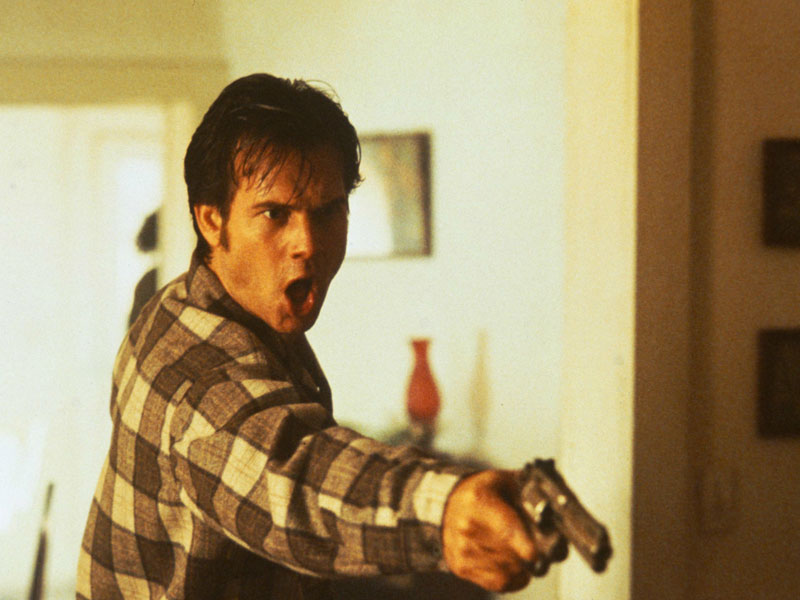
13. Billy Bob Thorton and Tom Epperson
The first-produced screenplay by the writing team of these two Arkansas natives resulted in one of the most critically acclaimed films of the 90s, 1992’s One False Move.
Billy Bob Thorton and Tom Epperson went on to write several other screenplays, both as individuals and as a team, over the years. Their writing collaborations have included 1996’s A Family Thing, that same year’s Don’t Look Back, and 2000’s The Gift. The duo’s last-produced effort, 2012’s Jayne Mansfield’s Car, co-starred and was directed by Thorton. That film has, to date, received very little attention from audiences or critics.
Thorton’s most noteworthy solo writing work is his Oscar-winning screenplay for 1996’s Sling Blade, which he also acted in and directed. In 2001, he starred in and directed the production of his original screenplay, Daddy and Them. Needless to say, Thorton has had a very successful acting career to fall back on between lapses in writing work.
Epperson has also stayed busy outside of his and Thorton’s collaborations. He co-wrote 1997’s A Gun, A Car, A Blonde and solely authored 2006’s Jesse Stone: Night Passage, a made-for-television adaptation of an entry in Robert B. Parker’s popular book series. To date, Epperson has also written four novels, 2008’s The Kind One, 2012’s Sailor, 2018’s Roberto to the Dark Tower Came, and the upcoming 2022 release, Make Believe.

12. Bruce Joel Rubin
An early New York peer of Brian De Palma and Martin Scorsese, Bruce Joel Rubin didn’t find Hollywood success until relatively late in his career. After having a couple of short films (one of which was directed by De Palma) produced in the 60s and 70s, his first-produced features were 1983’s Brainstorm (for which he would receive story credit) and 1986’s Wes Craven-directed Deadly Friend.
In the 90s, Rubin truly made his mark with the metaphysical, death-exploring productions of 1990’s Ghost (for which he won the Best Original Screenplay Oscar), that same year’s Jacob’s Ladder (which was previously one of the most celebrated unproduced screenplays of the 80s), and 1993’s My Life (which would also provide his first and, to date, only directorial credit).
Since his 90s winning streak, Rubin’s work has been scarce. The films that credited his name since then have little thematic connection to the titles that previously brought him high levels of success. Over the years, he has worked as a hired gun on such impersonal projects as 1998’s Deep Impact, 2002’s Stuart Little 2, and 2007’s The Last Mimzy.
Rubin somewhat returned to his roots with the modestly successful 2009 screen adaptation of The Time Traveler’s Wife and with his book and lyrics work for Ghost’s 2012 Broadway adaptation. Since then, Rubin’s name has not been attached to any projects with the exception of the poorly received 2019 Jacob’s Ladder remake, which he had no hand in writing despite the fact that it was based on his original work.
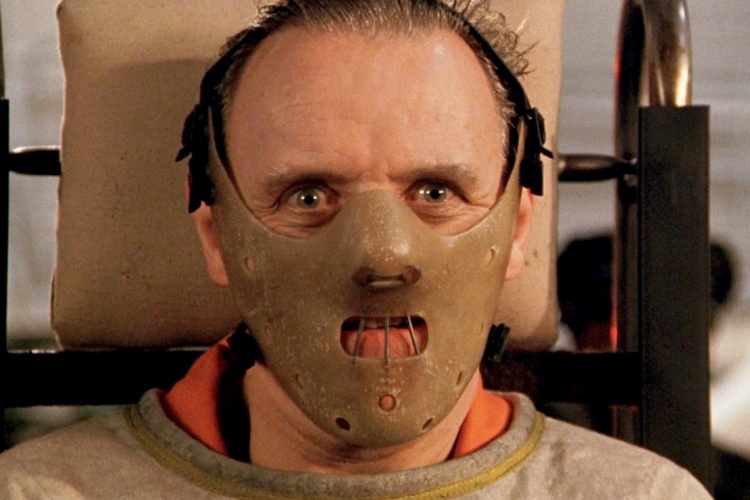
11. Ted Tally
Prior to winning the 1992 Best Adapted Screenplay Oscar for the classic, The Silence of the Lambs, Ted Tally was a successful playwright who had a few screen credits to his name.
Though Tally didn’t receive screenwriting credit for it, 1984’s made-for-television movie, Terra Nova, was based on his play. He co-wrote the 1987 made-for-television movie, The Father Clements Story, and the 1990 romantic drama, White Palace. It was Lambs’ success in 1991, however, that truly jumpstarted his Hollywood career.
Since Lambs, Tally’s talents have been somewhat pigeonholed, as every screenwriting credit he has since received has been for adapting a successful novel. 1996’s The Juror and Before and After, 2000’s All the Pretty Horses, 2002’s Red Dragon, and 2018’s 12 Strong all started out with a popular source material before receiving a Tally screen adaptation.
Aside from his screenwriting credits, Tally has been credited for a handful of miscellaneous tasks over the years. In 2000, he associate produced Brian De Palma’s Mission to Mars. Tally also worked as a creative consultant on such films as 2004’s Shrek 2, 2005’s Madagascar, and 2007’s Shrek the Third. With everything he has accomplished to date, Tally’s name is long overdue for his next major screenwriting credit.

10. Roger Avary
Roger Avary is, perhaps (depending on who you listen to), at least partially responsible for Quentin Tarantino’s meteoric rise to success in the 90s. He wrote the original screenplay for The Open Road, which would later mutate into Tarantino’s early screenplays for the 90s classics, True Romance (for which Avary did uncredited rewrites) and Natural Born Killers.
Though Avary won an Oscar for his “story by” credit on 1994’s Pulp Fiction, some believe he wasn’t properly credited and that he should have shared a full-on screenwriting title along with Tarantino for the classic film. However you cut it, Avary was right beside Tarantino during his early years of success, and it’s a downright shame that his name hasn’t achieved the same kind of recognition.
Since Pulp Fiction’s massive success, Avary has worked as both a director and a writer-for-hire. He wrote and directed 1993’s Killing Zoe, 1995’s Mr. Stitch, the 2002 adaptation of the Bret Easton Ellis novel, The Rules of Attraction, and, after a long hiatus, 2019’s Lucky Day.
As a screenwriter, he was also credited for 2006’s Silent Hill and for Robert Zemeckis’ 2007 adaptation of Beowulf. Though Avary is still working, it hasn’t been consistent enough to appropriately represent his massive and unsung talent.

9. Harley Peyton
Mark Frost and, especially, David Lynch are the names most often associated with the creation and development of the 90s classic series, Twin Peaks. Unbeknownst to many, both of Peaks’ original creators were too busy with other projects to properly oversee the show’s second season. Another writer by the name of Harley Peyton essentially served as the series’ showrunner during that time.
Peyton provided the show with snappy dialogue, mysterious storylines, and quirky humor that was primarily attributed to Lynch and Frost. Unfortunately, Peyton’s contributions to Twin Peaks are largely unnoticed.
Prior to Twin Peaks, Peyton had been credited for adapting Bret Easton Ellis’ debut novel, Less Than Zero, for a production released in 1987. Since Twin Peaks, Peyton has worked steadily, though rather quietly, on numerous projects. He is credited for writing or co-writing the screenplays for such feature films as 1996’s Heaven’s Prisoners, 1997’s Keys to Tulsa, 2001’s Bandits, and 2011’s Friends With Benefits. He has worked more prominently in television over the years, however, as a writer and a producer on such series as Dracula, Reign, Channel Zero, Project Blue Book, and Chucky. Most recently, he is credited for creating, writing, and executive producing the upcoming series, Reginald the Vampire.
Though he has remained plenty busy, Peyton has yet to receive suitable recognition for his noteworthy accomplishments.
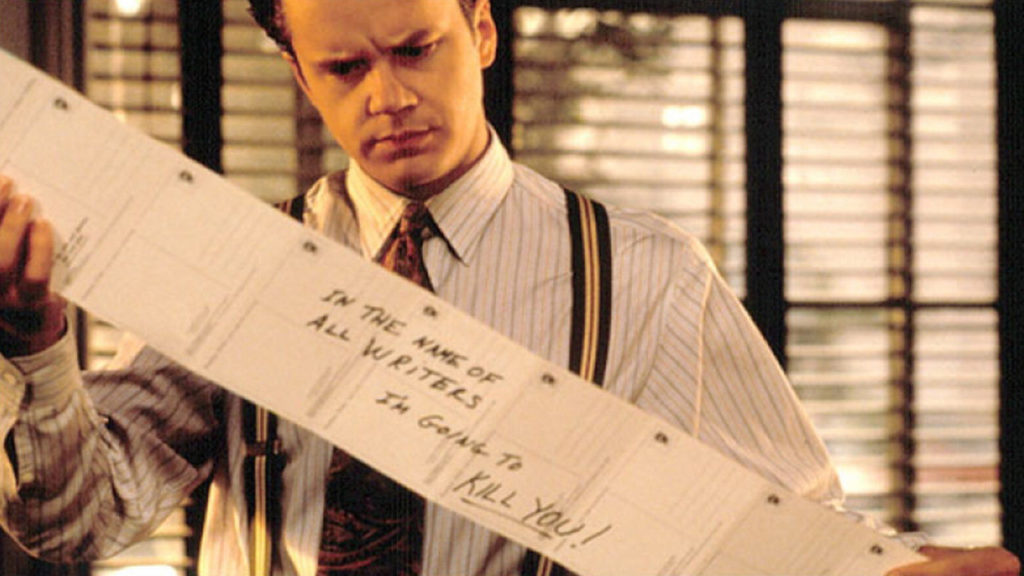
8. Michael Tolkin
In the early 90s, Michael Tolkin was a hot screenwriter because of his Academy Award-nominated work on The Player. Adapted from Tolkin’s own 1988 novel and directed by Robert Altman, the film exposed many of Hollywood’s dark sides, particularly its poor treatment of screenwriters.
Previously, Tolkin had briefly written for television, providing stories and teleplays for Taxi and Delta House. He had also written the 1989 Christian Slater-starring skateboarding drama/mystery, Gleaming the Cube. Tolkin then directed his own screenplay for the well-received 1991 religion drama, The Rapture.
Tolkin’s work since The Player has not been as celebrated. He’s worked steadily, however, with his name credited for writing or co-writing such screenplays as 1992’s Deep Cover, 1994’s The New Age (which he also directed), 1998’s Deep Impact, 2002’s Changing Lanes, and 2009’s Nine. He’s worked most prominently in television, writing and producing such shows as Ray Donovan, Escape at Dannemora, and the upcoming The Offer.
Tolkin has also written several novels over the years, including 1988’s Bed Master, 1993’s Among the Dead, 2003’s Under Radar, 2006’s The Player sequel, The Return of the Player, and 2017’s NK3.
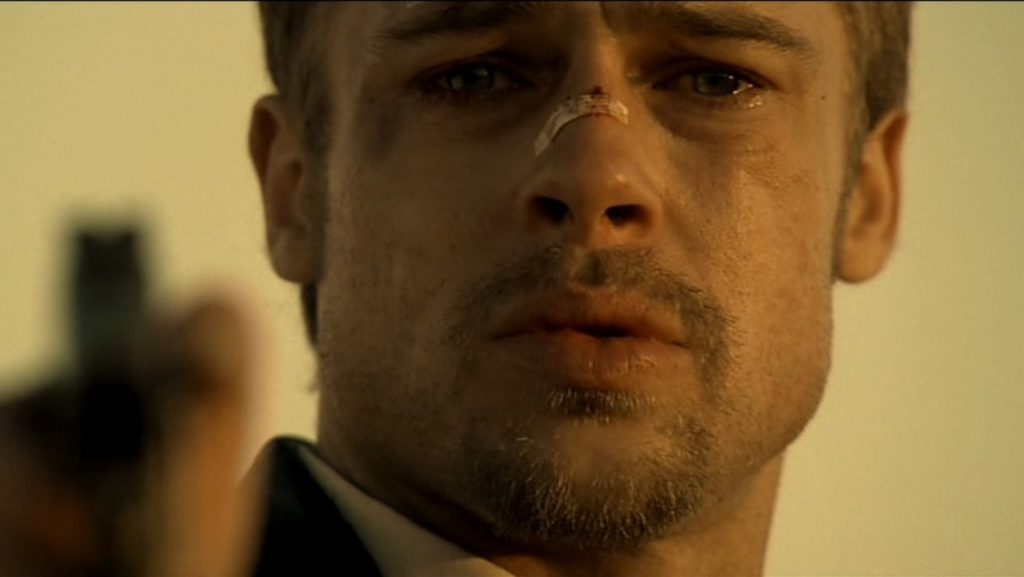
7. Andrew Kevin Walker
While working at a Tower Records in New York City, Andrew Kevin Walker penned the screenplay that would jump-start his career in Hollywood. Se7en was not his first-produced film, but it did get him work on such projects as a Tales From the Crypt episode and the mid-90s films, Brainscan and Hideaway. When Se7en was eventually released in 1995, it became an instant classic whose writer was essentially deemed as Hollywood’s premier prince of darkness.
During that time, Walker also worked as a script doctor, doing uncredited rewrites on such films as Event Horizon, The Game, Fight Club, and Stir of Echoes. Walker was then credited for writing two films that were released in 1999, 8MM and Sleepy Hollow. Despite the fact that they were toned down by other writers (much to Walker’s disliking), both films still managed to cement Walker’s image as one of Hollywood’s grittiest, edgiest, and most uncompromisingly dark writers.
Since the 90s, Walker’s work has been somewhat scarce. In the early 2000s, he wrote three short films for the BMW film series, The Hire, starring Clive Owen. After that, he wasn’t credited for a feature project until 2010’s negatively received The Wolfman. In 2015, Walker became a first-time novelist when his book, Old Man Johnson, was published. In 2016, Walker wrote the little-seen and darkly comedic animated feature, Nerdland.
Currently, Walker has two high-profile projects to his name and appears to be in the midst of a possible comeback. He co-wrote the 2022 thriller, Windfall, which was just released on Netflix. The recently wrapped and upcoming The Killer, based on Alexis Nolent’s graphic novel, reunites Walker with his Se7en director, David Fincher. Time will tell if either of these projects brings Walker back to the level of prominence he once had.
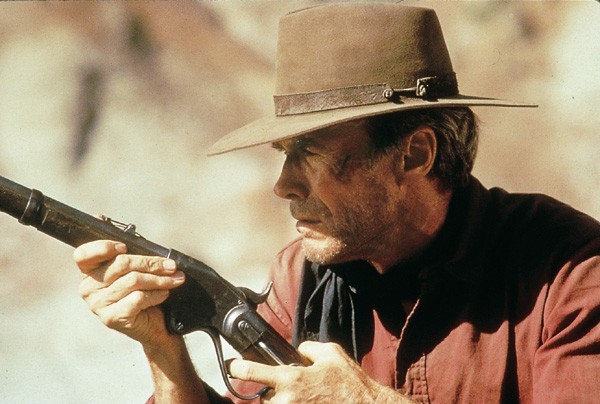
6. David Webb Peoples
Before the 90s, David Webb Peoples had already secured a successful career in Hollywood. He was best known for rewriting Hampton Fancher’s Blade Runner screenplay for director Ridley Scott in the early 80s. He went on to do an uncredited rewrite for Richard Donner’s 1985 production of Ladyhawke. Peoples was then credited for writing the story for the 1989 science fiction/horror film, Leviathan, and for writing and directing the same year’s Rutger Hauer-starring minor cult classic, The Blood of Heroes.
The 90s were even more successful for Peoples. He was nominated for the Academy Award for Best Original Screenplay for the 1992 classic Clint Eastwood Western, Unforgiven. He would then go on to be credited for 1992’s Hero, 1995’s 12 Monkeys (which he co-wrote with his wife, Janet), and 1998’s Soldier.
Since the 90s, Peoples’ name has not been associated with any new works. He has been credited for the source material of a Japanese remake of Unforgiven and for a series adaptation of 12 Monkeys, but not for anything original.
Though Peoples currently appears to have stepped away from Hollywood, his past accomplishments will continue to speak for themselves for many years to come.
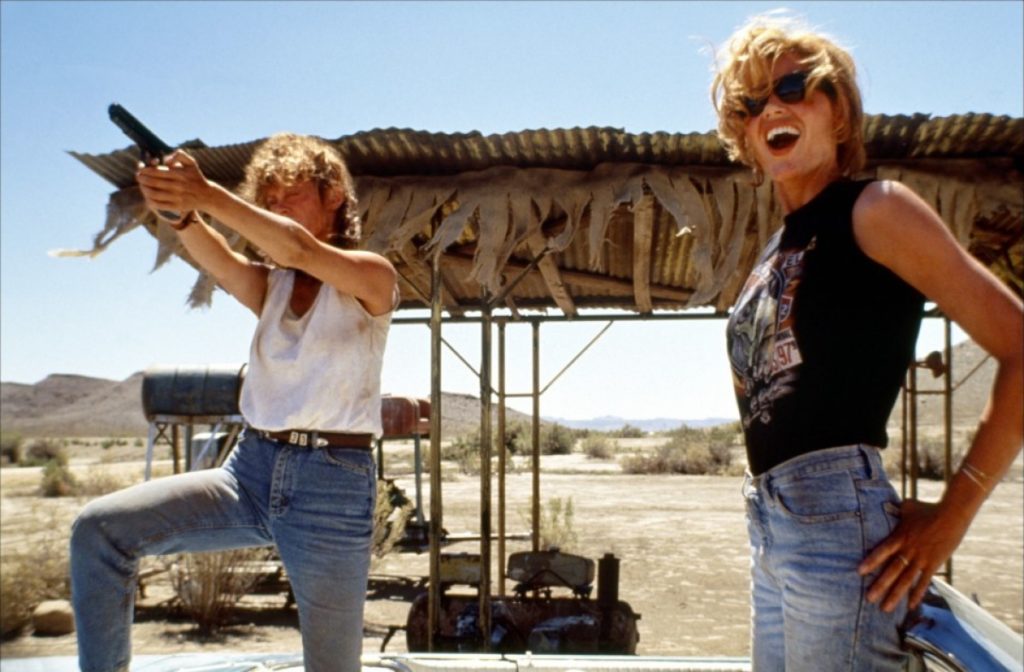
5. Callie Khouri
While working as a production assistant for a commercial and music video company, Callie Khouri wrote her first screenplay. That script went on to become the Ridley Scott-directed, Susan Sarandon- and Geena Davis-starring feminist classic, Thelma & Louise. Khouri received a great deal of recognition for her work on the film, culminating with her 1992 Oscar for Best Original Screenplay
Since Thelma & Louise, Khouri has worked consistently as a director, writer, and producer on projects with varying degrees of success, though none of them have received the same kind of attention that Thelma & Louise did.
In 1995, Khouri penned the modestly successful Julia Roberts–starring romantic comedy, Something to Talk About. In 2002, she made her directorial debut with her hit adaptation of the popular book, Divine Secrets of the Ya-Ya Sisterhood. Khouri also wrote and directed an ABC pilot called Hollis & Rae in 2006, but it wasn’t picked up. In 2008, she directed other screenwriters’ work for the disappointingly received Mad Money.
Khouri’s most enduring success post-Thelma & Louise was with the ongoing series, Nashville, for which she served as a creator, executive producer, and sometimes writer and director. Since that show’s end after its sixth season in 2018, Khouri has directed the made-for-television movie, Patsy & Loretta, and co-directed (along with her True Detective musician husband, T Bone Burnett) an upcoming Jerry Lee Lewis documentary.
Khouri’s voice and talents are still in high demand after all these years, despite the fact that she’s currently not the household name that her admirers know she should be.
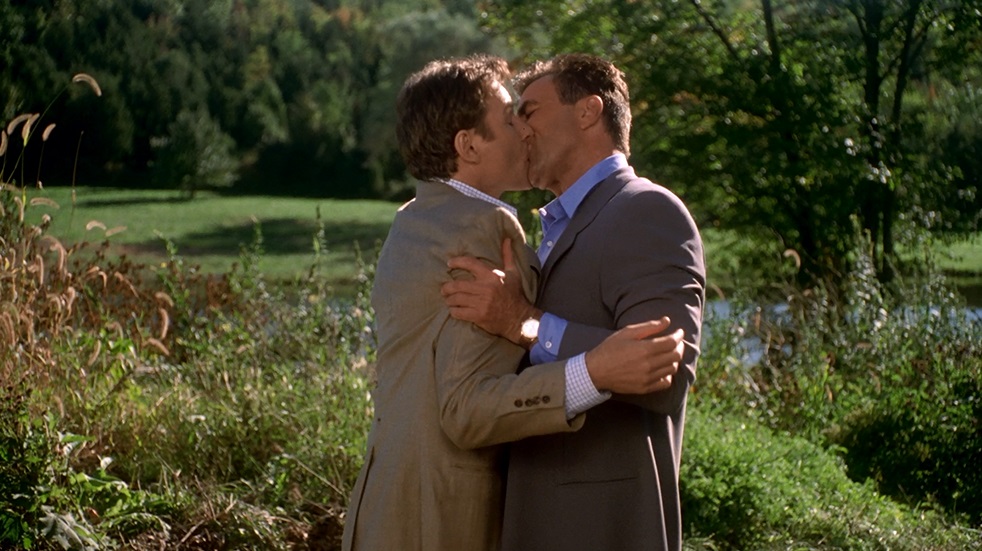
4. Paul Rudnick
Paul Rudnick was a successful playwright and novelist in the 80s and early 90s before beginning his screenwriting career. As a screenwriter, Rudnick first lent his wittily satiric voice to such early 90s comedy classics as The Addams Family, The First Wives Club, and Sister Act—none of which he received or accepted screen credit for co-writing.
Once established, Rudnick went on to be credited for his work on the underrated and endlessly clever 1993 sequel, The Addams Family Values, and for his 1995 screen adaptation of his hit play, Jeffrey. Openly gay during a time when few dared to be, Rudnick’s unique sensibilities gave the homosexual community a voice in popular filmmaking. This culminated with his celebrated 1997 comedy about a man grappling with his own confused sexuality, In & Out.
Since the 90s, Rudnick’s screenwriting career has persevered, though not without its share of lulls. Rudnick’s name has appeared on a number of screenplays since then, including 2000’s Isn’t She Great, 2003’s Marci X, 2004’s The Stepford Wives, the unpicked 2016 CBS pilot, I Shudder, and the 2020 made-for-cable COVID-19 comedy, Coastal Elites. His name is currently attached to the pilot for a potential new series, The Biggest Star in Appleton.
Rudnick’s sparkling writing talents have been put to good use in other mediums over the years. He has consistently had plays produced (he most recently wrote the book for the stage musical production of The Devil Wears Prada) and essays and books published (2021’s Playing the Palace is his most recent novel) that showcase his endlessly clever and insightful observations on life.
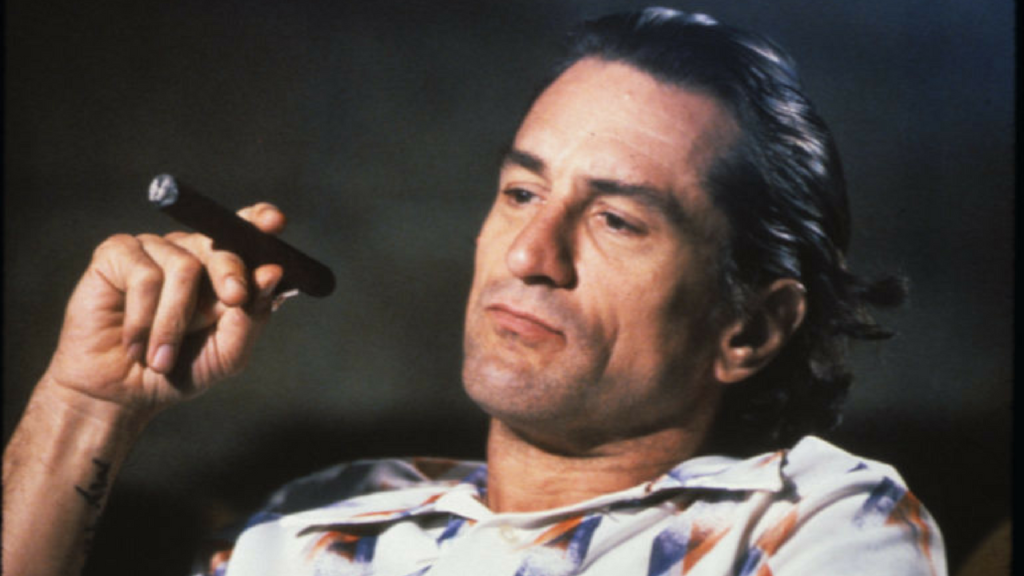
3. Wesley Strick
Wesley Strick began his writing career in New York City in the 80s as a rock journalist, contributing to such publications as Cream and Rolling Stone. His first produced screenplay was for the 1989 legal thriller, True Believer, which stars James Woods and Robert Downey Jr.
Strick then went on to write or co-write the screenplays for a number of high-profile 90s films, including 1990’s Arachnophobia, Martin Scorsese’s 1991 remake of Cape Fear, 1992’s Final Analysis, 1994’s Wolf, 1997’s The Saint, and 1998’s Return to Paradise. He also did uncredited script doctoring work for such popular films of the time as Batman Returns, Face/Off, and Mission: Impossible 2. In the 90s, Strick seemed to be on an unstoppable winning streak when it came to being an in-demand writer for intelligent, adult-oriented, and character-driven thrillers.
In 1995, he gave directing someone else’s screenplay a try with the underrated, Daryl Hannah-starring thriller, The Tie That Binds. Strick would go on to direct his own screenplay for the darkly comedic and unjustly under-known 2001 made-for-television movie, Hitched. He also tried his hand at being a novelist, penning 2006’s Out There in the Dark and 2009’s Whirlybird.
Strick has worked consistently as a screenwriter on a variety of projects since the 90s, though with some occasional lulls on his resume. His most noteworthy screenwriting work in the 2000s was for Tim Burton’s famously unproduced film, Superman Lives. He was also credited for writing or co-writing 2001’s The Glass House, 2005’s Doom, 2006’s Love is the Drug, 2010’s A Nightmare on Elm Street remake, and 2014’s The Loft.
In 2016, Strick turned to streaming when he started writing episodes of the Phillip K. Dick-based series, The Man in the High Castle. Strick has also recently written an episode of the series, Monsterland.
Though he isn’t currently getting spec scripts produced or working with A-list directors, Strick’s talents are still being put to use on well-regarded projects. Hopefully, it’s just a matter of time before another edgy, intense, and intelligently crafted screenplay by Wesley Strick finds its way into production again.

2. Caroline Thompson
Caroline Thompson began her offbeat writing career in 1983 with the publication of her novel, First Born, which is a horrific and darkly comedic tale about an abortion that comes back to life. The book, whose potential film adaptation drew interest from such filmmakers as Penelope Spheeris and William Friedkin, opened a number of Hollywood doors for Thompson, despite the fact that it never wound up being produced as a feature film.
First Born also caught the attention of director Tim Burton, who would go on to collaborate with her on the story for his 1990 film, Edward Scissorhands. Thompson is solely credited for writing the film’s screenplay.
After that iconic film’s release, Thompson wrote or co-wrote a number of popular titles, including 1991’s The Addams Family and three 1993 titles, Homeward Bound: The Incredible Journey, The Secret Garden, and The Nightmare Before Christmas. After securing her footing in Hollywood through screenwriting, Thompson was then given the opportunity to direct her screenplays for 1994’s Black Beauty and 1997’s Buddy.
After her 90s hot streak, Thompson continued to work, though not quite as steadily and not on projects that would go on to have the same classic status as many of her previous ones. She directed one more of her scripts for the 2001, made-for-television production, Snow White: The Fairest of Them All. In 2005, she collaborated with director and choreographer Matthew Bourne for a theatrical ballet production of Edward Scissorhands. Also in 2005, Thompson received a co-screenwriting credit for reuniting with Tim Burton for his film, Corpse Bride. In 2008, she was credited for her screenplay adaptation of Jeanne Duprau’s book, City of Ember.
In the late 2000s, Thompson launched Small and Creepy Films, a production company dedicated to releasing artfully strange short films online. She also wrote an unproduced and celebrated adaptation of the popular Young Adult book series, Wicked Lovely, in the early 2010s. Thompson wasn’t credited for writing another feature-length film until she collaborated with director Robert Zemeckis on the screenplay for his underrated 2018 production, Welcome to Marwen.
Whatever is next on the horizon for Thompson, we can only hope it will be worthy of her endlessly fascinating and highly unconventional talents.
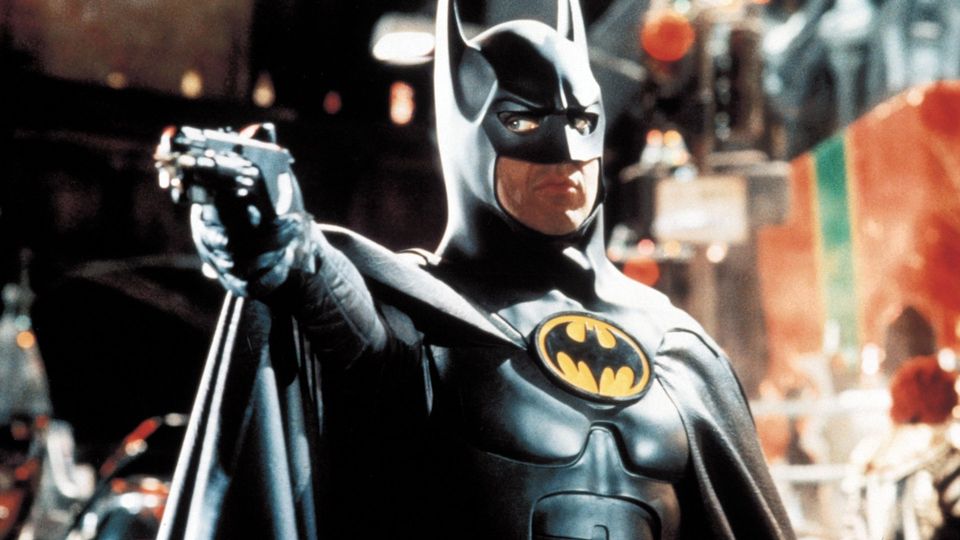
1. Daniel Waters
Daniel Waters began his screenwriting career in the late 80s while working at a video store and eating popcorn for dinner every night. During this time, he worked on the screenplay for the 1989 dark comedy classic, Heathers. Waters would go on to become a highly in-demand screenwriter whose wildly unique talents produced some of the most off-kilter and tonally daring mainstream films of the 90s.
Waters’ 90s screenplay credits showcase a distinctly innovative and cleverly satiric writing style. 1990’s The Adventures of Ford Fairlane and 1991’s Hudson Hawk both contain charmingly lowbrow and unconventional senses of humor. Neither film was met with much respect, as Waters was given the uncoveted Razzie Award for Worst Screenplay two years in a row for co-writing both films. 1992’s Batman Returns and 1993’s Demolition Man both contain a wholly original mix of action, extreme and silly absurdism, and surprisingly profound social commentary. Two celebrated scripts by Waters, The Model Daughter and a Batman Returns spinoff titled Catwoman, were also written during this time but never found their way into production.
Waters’ work has only been produced on rare occasions since the 90s. He directed his own screenplays for two comedies that daringly tested the boundaries of their genre, 2001’s underrated Happy Campers and 2007’s excellent Sex and Death 101. He has been credited for writing one other feature since then, the disappointingly received 2014 adaptation of Richelle Mead’s popular Young Adult book series, Vampire Academy. That film happened to be directed by Waters’ younger brother, Mark.
2018 saw the release of a short-lived series based on Heathers, though Waters had nothing to do with its production aside from creating the source material. Also in 2018, Waters tried to create an ongoing series with the production of his satiric fashion industry pilot, #Fashionvictim, which was also directed by his brother, Mark. The pilot was never picked up and is, to date, the last work that Waters has had produced.
Waters recently announced on social media that he is currently putting the finishing touches on his first novel—a format which will, no doubt, serve the robustly verbose writer well. Regardless of the medium that he chooses, Waters’ highly individualistic, beautifully astute, and bitingly effective wit is needed as much today as it has ever been.
